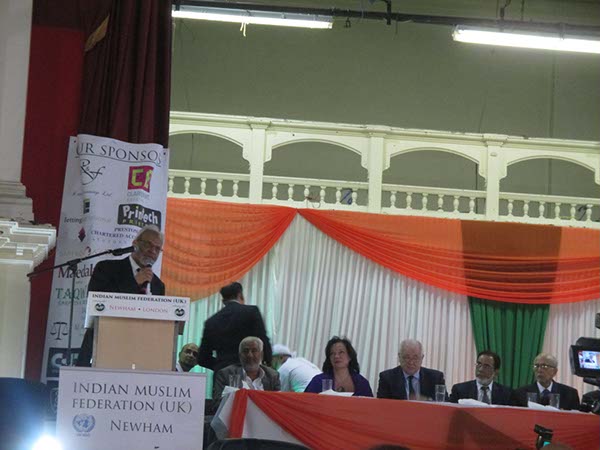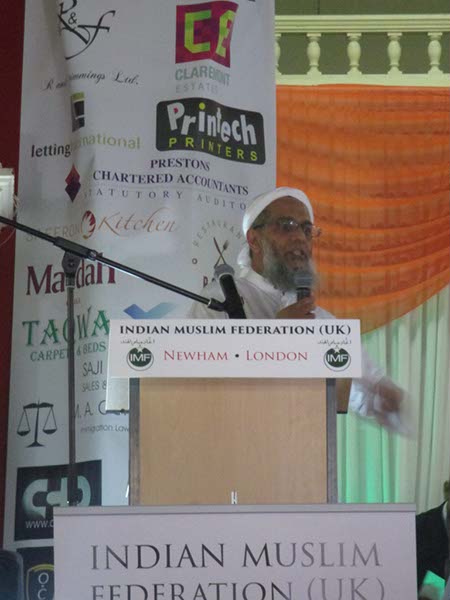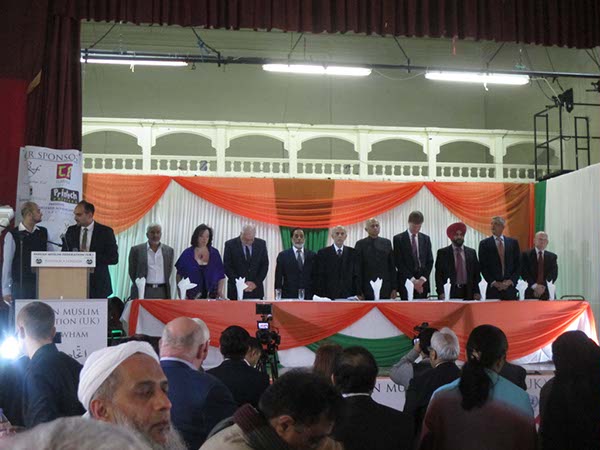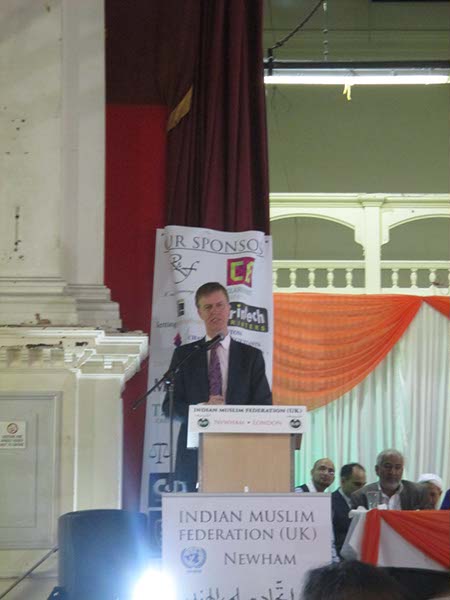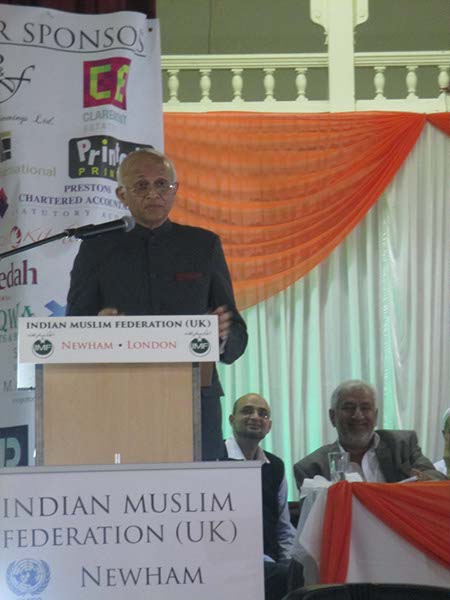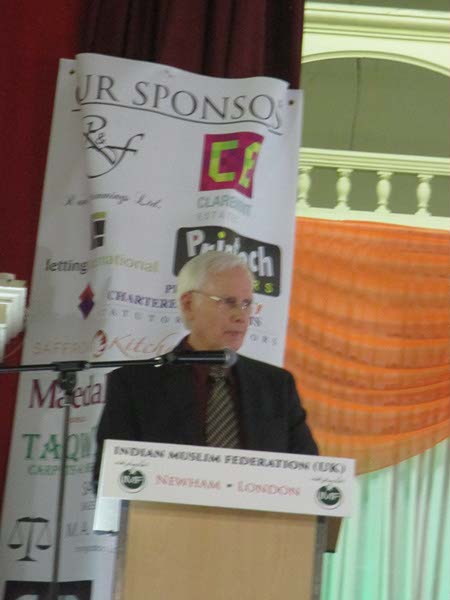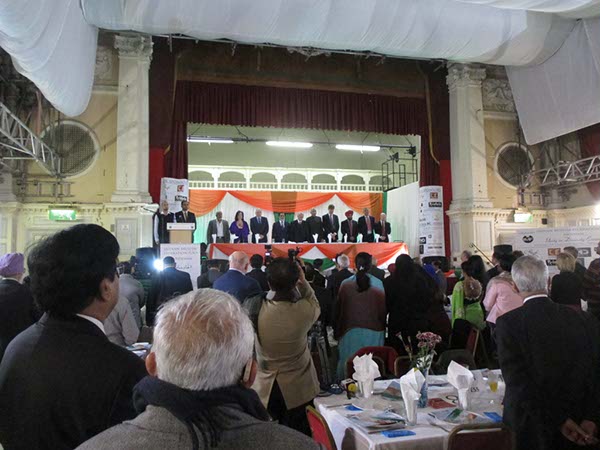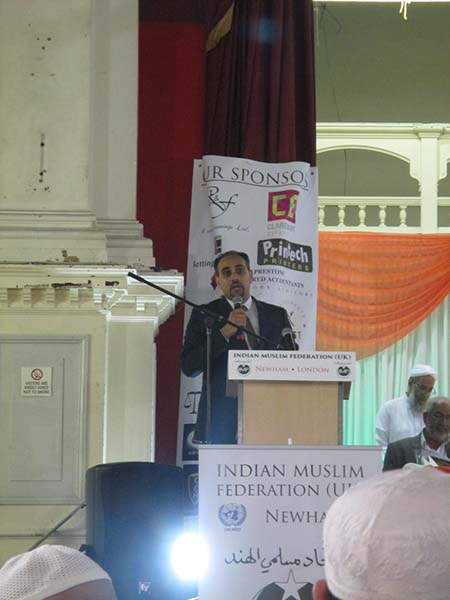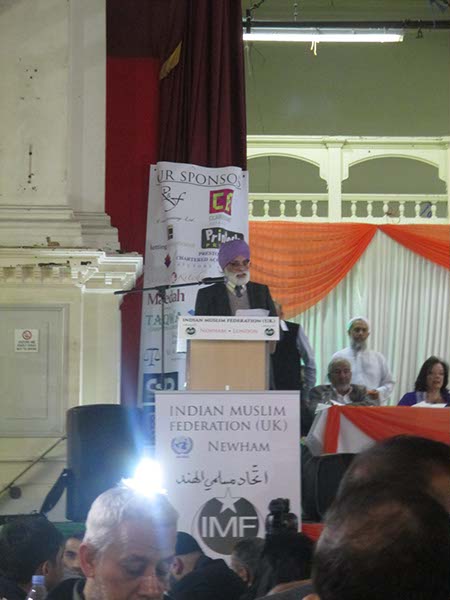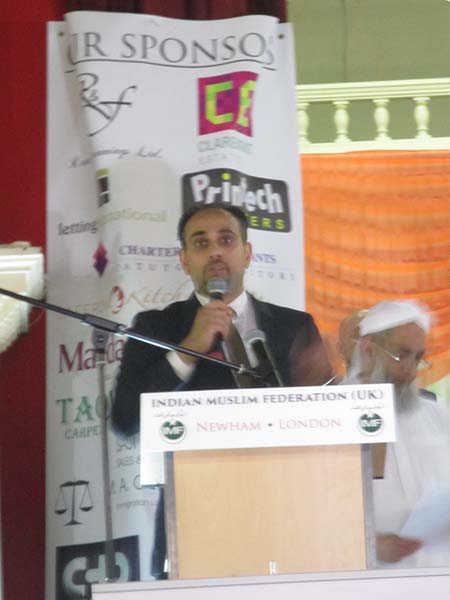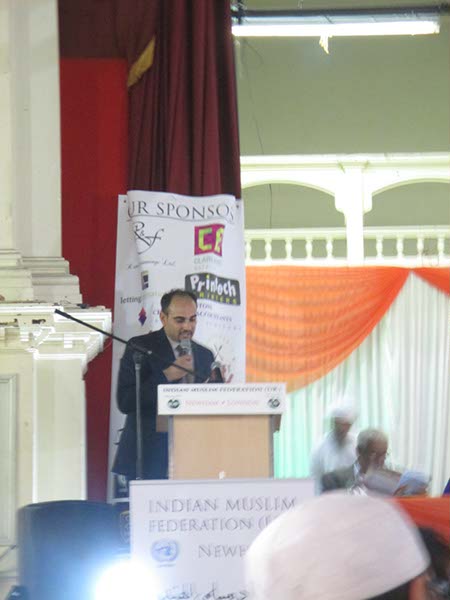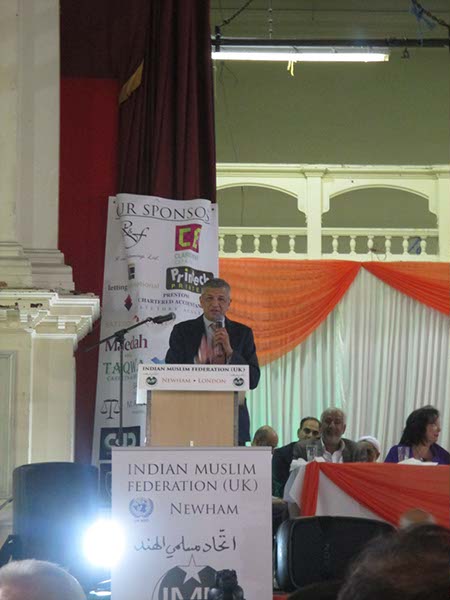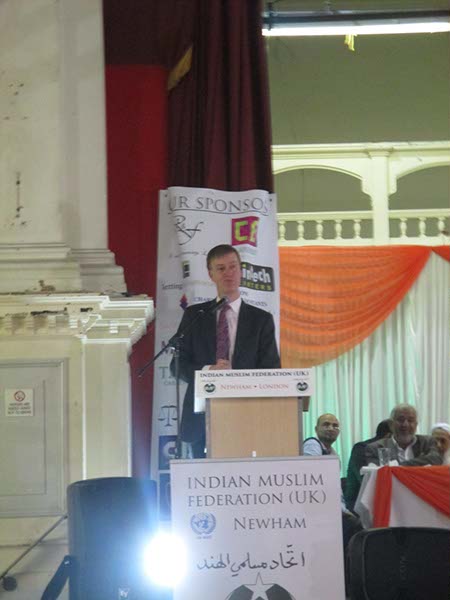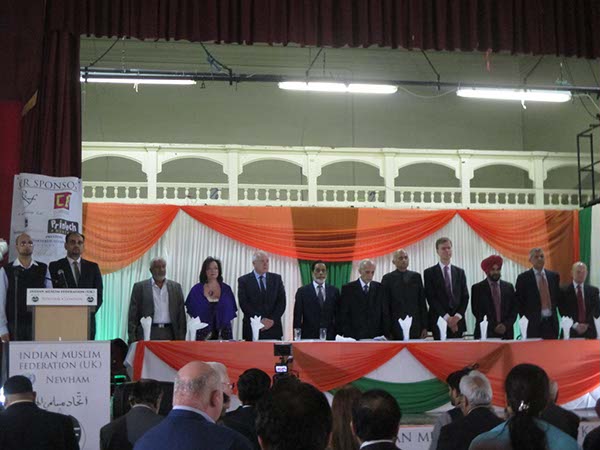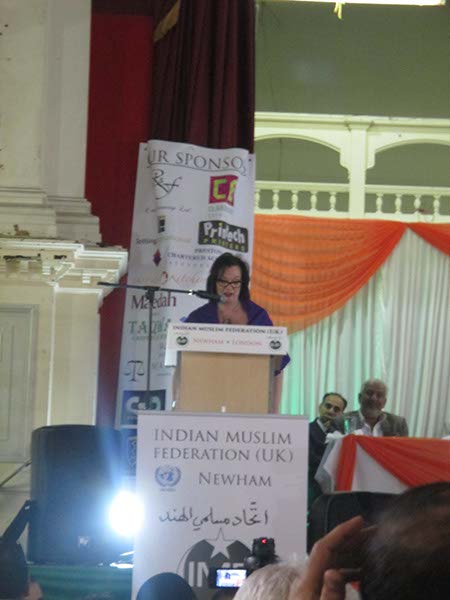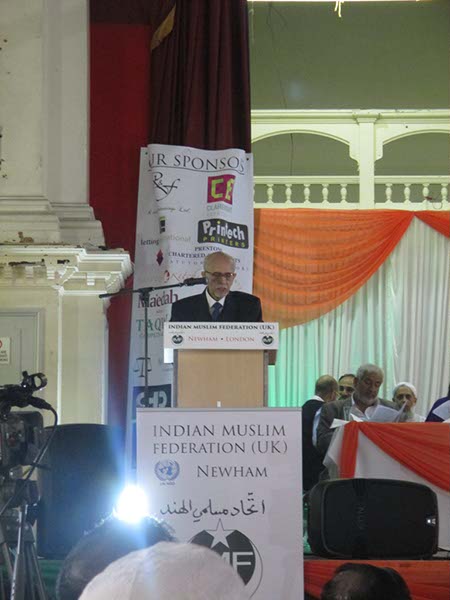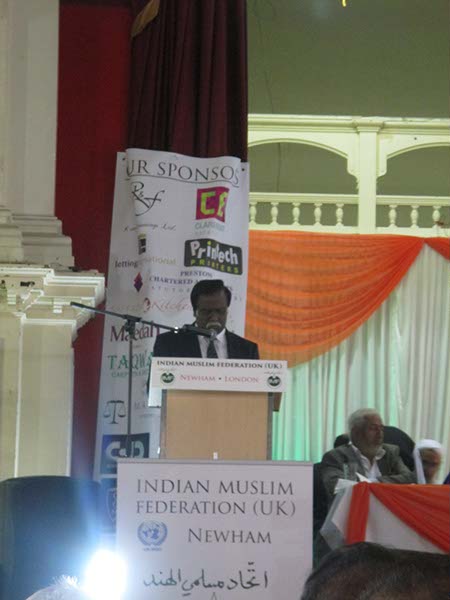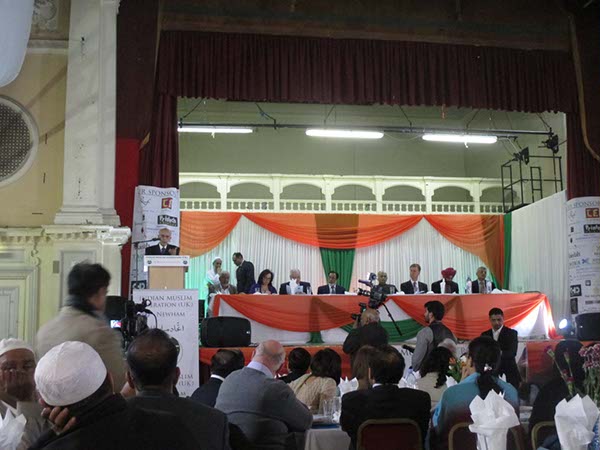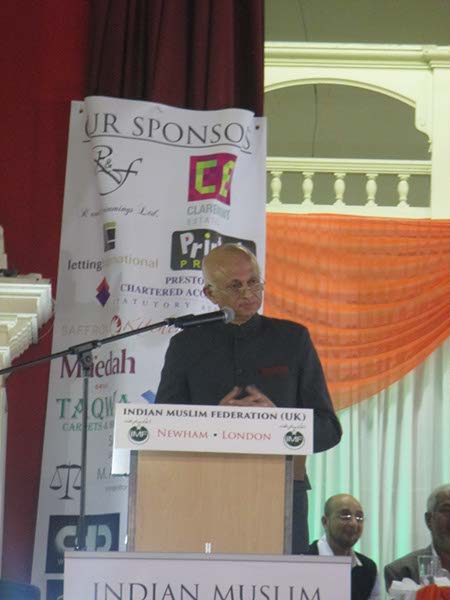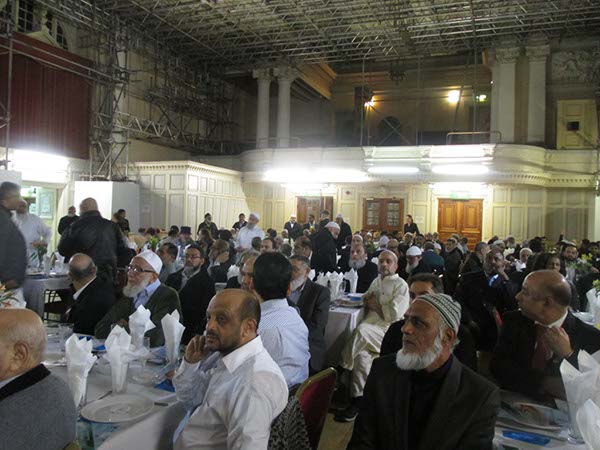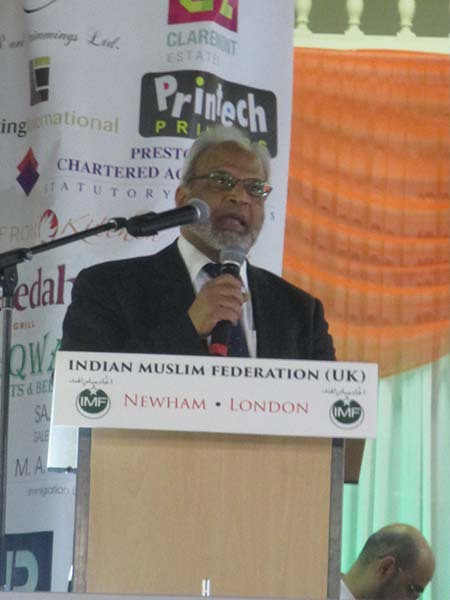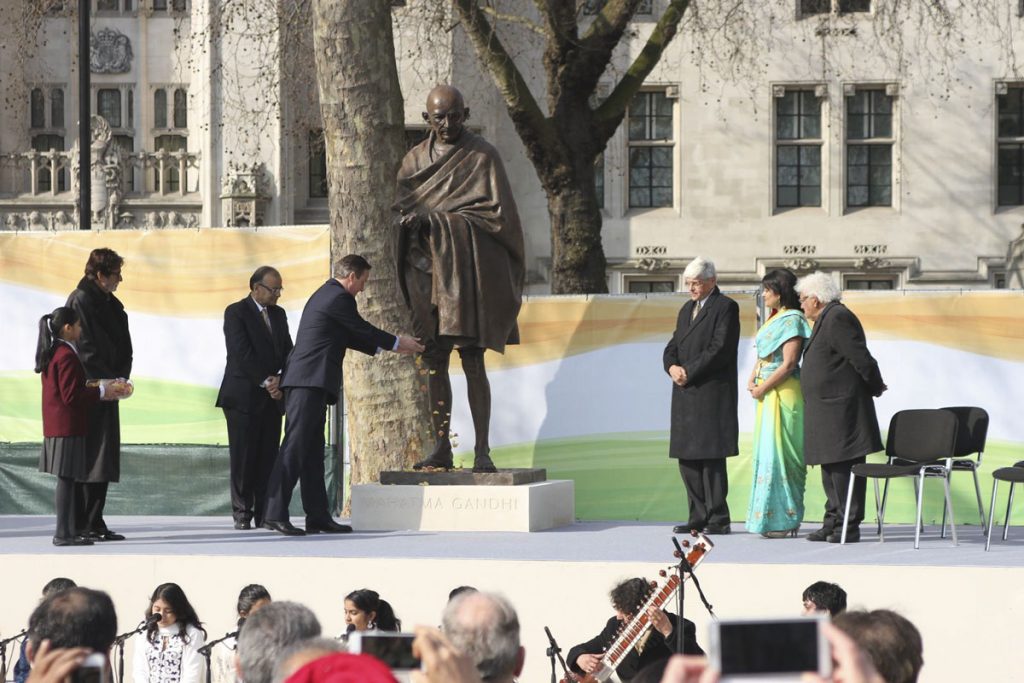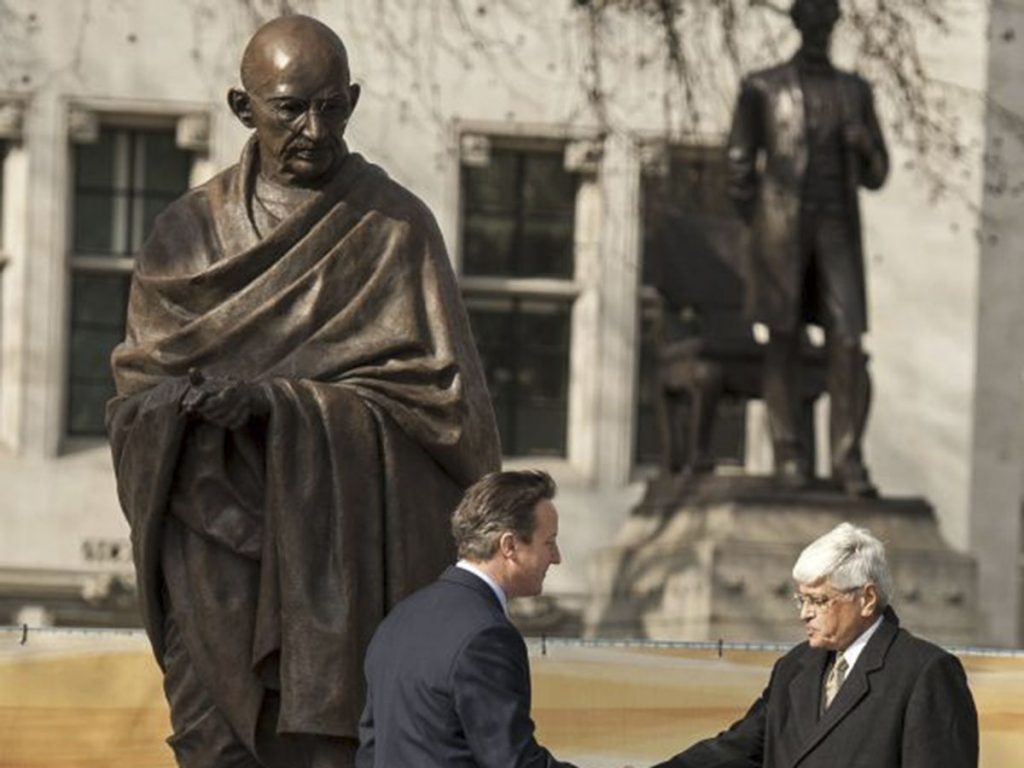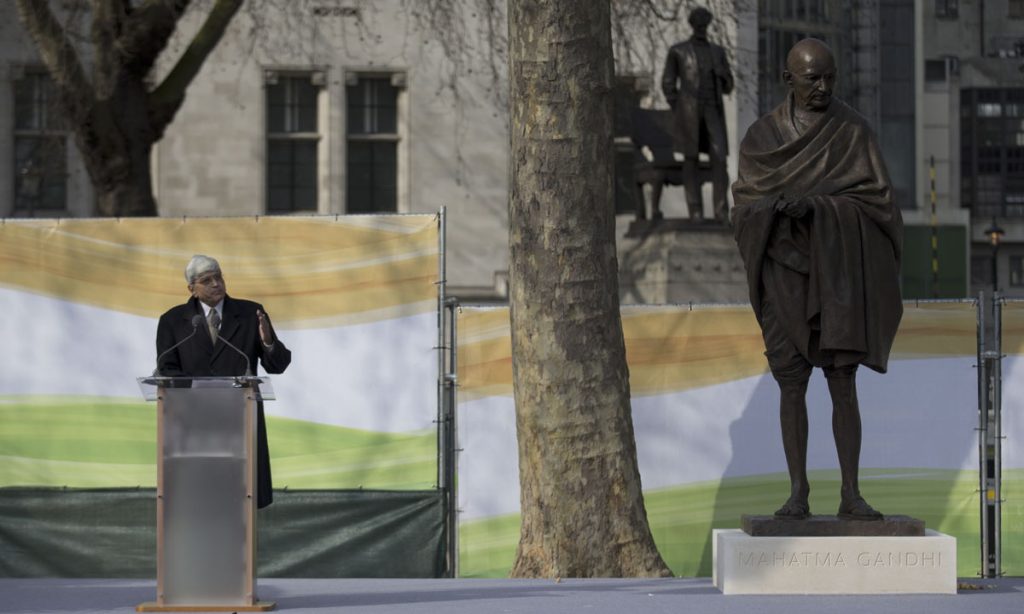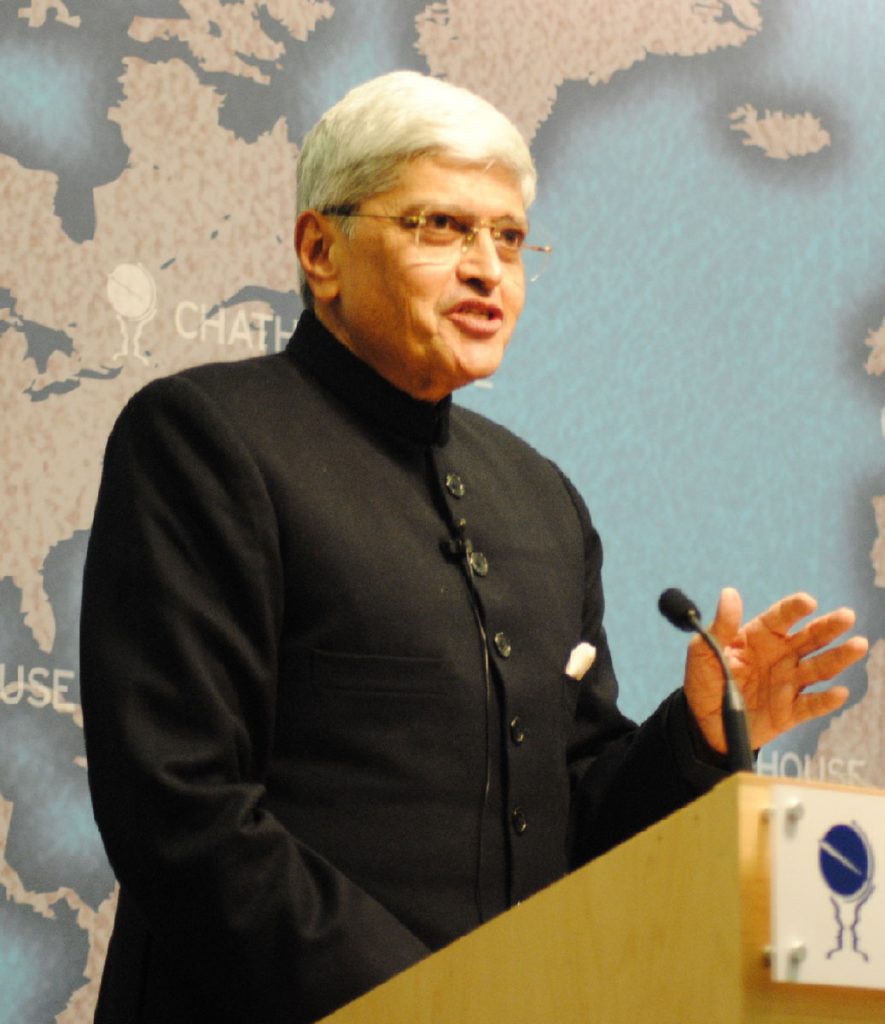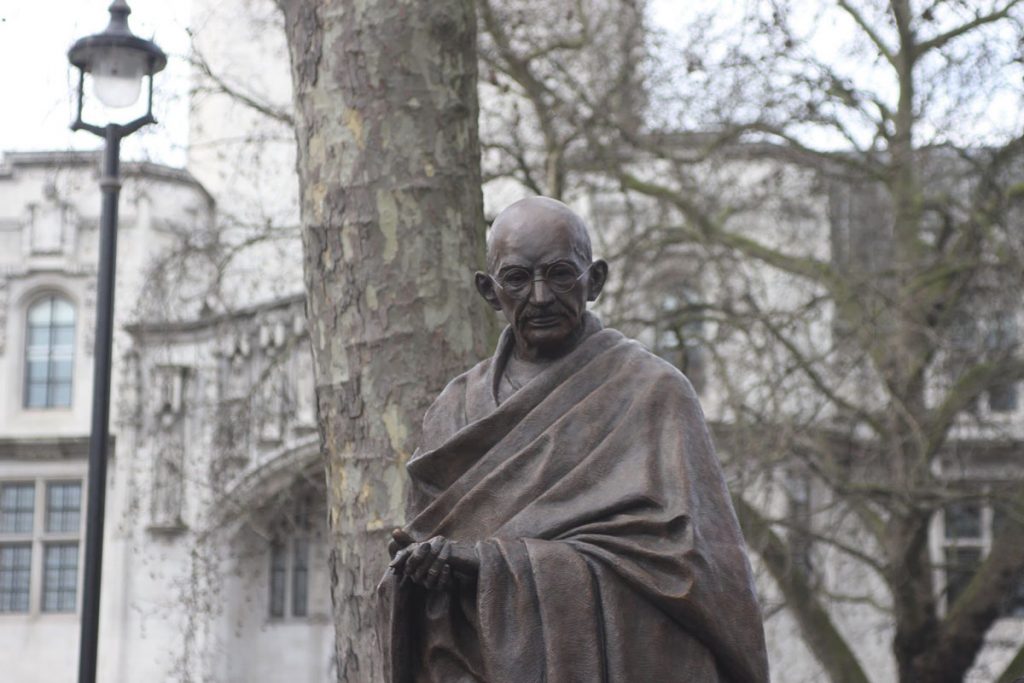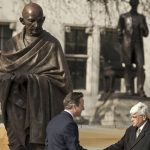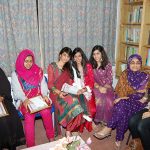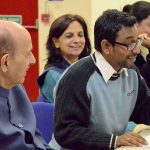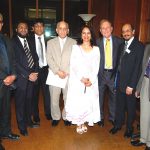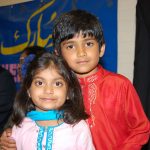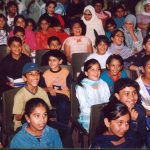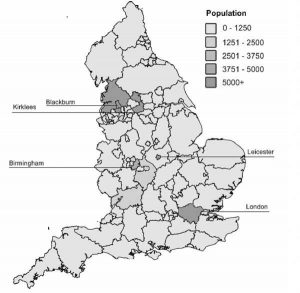In the wake of growing Islamophobia and rise of anti-immigrant parties, business and community leaders in London came together at a dinner called by the Indian Muslim Federation. Indian High Commissioner Ranjan Mathai was the chief guest at the event.
Monthly Archives: March 2015
Unity in Diversity
In the wake of growing Islamophobia and rise of anti-immigrant parties, business and community leaders in London came together at a dinner called by the Indian Muslim Federation. Indian high commissioner Ranjan Mathai was the chief guest at the event.
#News18FacebookSpecialIn the wake of growing Islamophobia and rise of anti-immigrant parties, business and community leaders in London came together at a dinner called by the Indian Muslim Federation.Indian high commissioner Ranjan Mathai was the chief guest at the event
Watch a Clip
Gandhi in London
A new statue commemorating the life and works of Mahātmā Gandhi – the inspiration for the non-violent civil rights movement – was unveiled in the Parliament Square, London on 14th March 2015. Tributes were paid by Rt. Hon. Prime Minister David Cameron; Mr. A. Jaitley, Minister of Finance, Government of India; a reading by Mr. Amitabh Bachchan, Indian Actor and Reflection by the grandson of Mahātmā Mr. Gopalkrishna Gandhi.
The text of the speech delivered by Shri Gopalkrishna Gandhi is re-printed and circulated at the Indian Muslim Federation (UK) programme:
‘Unity in Diversity’
organised by the Indian Muslim Federation (Newham Branch) on Tuesday, 31 March 2015 at Newham Town Hall, London.
He looked rather like this, sixty-eight years ago, to his assassin.
He looked straight into his eyes, quite exactly like this.
Gandhi was walking, of course, not standing. And he walked straight into those three bullets.
He embraced those darts, he did. With the might of his pain for others, the depth of his faith in God, he hugged them.
He had fought for years to prevent the division of India along the lines of religions.
But with that division a fact, he fasted for peace amongst the two main peoples of India – Hindus and Muslims – and for trust between the newly independent India and new-born Pakistan which included what now is Bangladesh.
Had he lived, he would have asked to have the man who shot at him, freed. He had as we know, been greatly influenced by Jesus, the Christ. Gandhi had just begun to dream to work for a new India that may or may not be rich, may or may not be powerful, but which will be fair and just, to its own poor, and to the immiserated everywhere.
He believed in learning from Truth – the one with the capital ‘T’ – and from the many truths of India, the truths that made her great , the truths that keep her small – and not running away from them, papering them over or pretty-fying them. Peace and its offering, happiness, can only come by acknowledging what I real. He said “the way of peace is the way to truth”.
Gandhi scorched by his love, he healed by his fire.
We need him in India today more than we ever have. He said there was so much he had left unfinished he would like to be re-born. But he would not want us to be looking out for the re-born Gandhi. In any case, that would be a loser’s way of doing things. Gandhi was no loser. India is no loser. India finds herself, from the debris of her mistakes, the ruins of her aspirations. Whenever she has been considered ‘lost’, she has been found by an astonished world, a relieved world, to be the mother of her greatest son, Gautama the Buddha in the composure that lies beneath the turbulence, and to the genius of her immensely wise and even sagacious people, of all faiths and of the other great faith – faith in their striving hands. I have used ‘she’ for India with deliberation for that ‘she’, the woman in India, worshipped in concept but neglected, exploited, abused in reality, is one of the scorching truths of India.
The fact that London, the capital of the then Imperial Power he dis-engaged India from, raises a statue for him even as India has some people contemplate a temple for his assassin, shows that Gandhi’s work for freedom of belief and expression succeeds in the most unbelievable ways.
You were not infallible Mohandas Gandhi. You erred often, as your wife, Kasturba, knew more than any other person. But you owned your errors, tried always to be better than your best. Bronzed and hearkening, here, in what once was your ‘opposite ground’, you will give heart to those who want a world that does not fear the bully, the bomb or the blatant lie. You will show us, too, that money cannot buy, nor power-suborn the truth.
On behalf of his ‘family’, which means not just his biological descendants alone – he did not elevate family descent – but all those anywhere who experience the tyranny of bigotry and exploitation and try to resist it, I felicitate Great Britain and Her Majesty’s Government for creating space for this Gandhi statue on this great Square. That large ‘family’ celebrates the fact of his statue taking its place right beside that of his political descendant, Nelson Mandela. How many countries celebrate the life-work of a man who opposed it with vehemence for more than three decades? Not many.
Britain celebrates Gandhi today because while oppose he did, he opposed it in a cause that Britain now sees was just, and in a way the world now sees was fair – so fair as to have set an all-time example. On behalf of all present here today and the generations of pedestrians, young and once-young, from all nationalities and customs who will see it, I offer to Britain’s sense of history congratulations, her wisdom, appreciation and to the master-sculptor of this statue, Philip Jackson.
Gopalkrishna Gandhi born April 22, 1945 is the grandson of Mahātmā Gandhi, and son of Devadas Gandhi and Lakshmi Gandhi. His maternal grandfather was C. Rajagopalachari (Rajaji). He is the younger brother of Rajmohan Gandhi, and the late Ramchandra Gandhi, and Smt. Tara Bhattacharjee (Gandhi), all of whom are distinguished in their own right. Gopalkrishna Gandhi and his wife Tara Gandhi have two daughters, both of whom are married.
He has authored one novel (Saranam – “Refuge” in English) and a play in verse (Dara Shukoh). His other books are – “Gandhi and South Africa”, “Koi Acchha Sa Ladka” (translation into Hindustani of Vikram Seth’s novel ‘A Suitable Boy’), “Gandhi and Sri Lanka”, “Nehru and Sri Lanka”, “India House, Colombo – Portrait of a Residence”, “Gandhi Is Gone. Who Will Guide Us Now?” (edited), “A Frank Friendship/ Gandhi and Bengal: A Descriptive Chronology” (compiled and edited).
Gandhi graduated with a master’s degree in English literature from St. Stephen’s College of Delhi University. He joined IAS as an Officer in 1968 and served in Tamil Nadu state till 1985 and Secretary to Vice-President of India (1985 – 1987), Joint Secretary to President of India (1987 – 1992).
He is the Chairman of Kalakshetra Foundation, Chennai since December 2011. He was appointed the chairman of governing body of Indian Institute of Advanced Study, and president of its society on March 5, 2012.
In 1992 he became Minister (Culture) in High Commission of India, UK and Director, The Nehru Centre, London, UK. This was followed by various diplomatic and administrative positions for the rest of his career including High Commissioner of India to South Africa and Lesotho (1996), Secretary to President of India (1997-2000), High Commissioner of India in Sri Lanka (2000), and Ambassador of India to Norway, and Iceland (2002), before his retirement from IAS in 2003. In 2004, he was appointed Governor of West Bengal on 14 December 2004.
Indian Muslim Federation (UK)
The Indian Muslim Federation (UK) is the largest organisation of Indian Muslims in United Kingdom and has NGO status with ECOSOC, United Nations. The Federation was founded in September 1969 by British Indian Muslims in the wake of the anti-Muslim riots in Ahmedabad, Gujarat. The Federation maintains contacts with the British and Indian Governments, representatives of the United Nations and its specialised agencies and governmental and non- governmental organisations.
